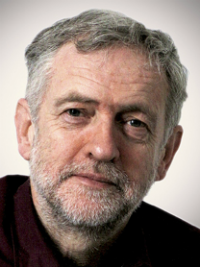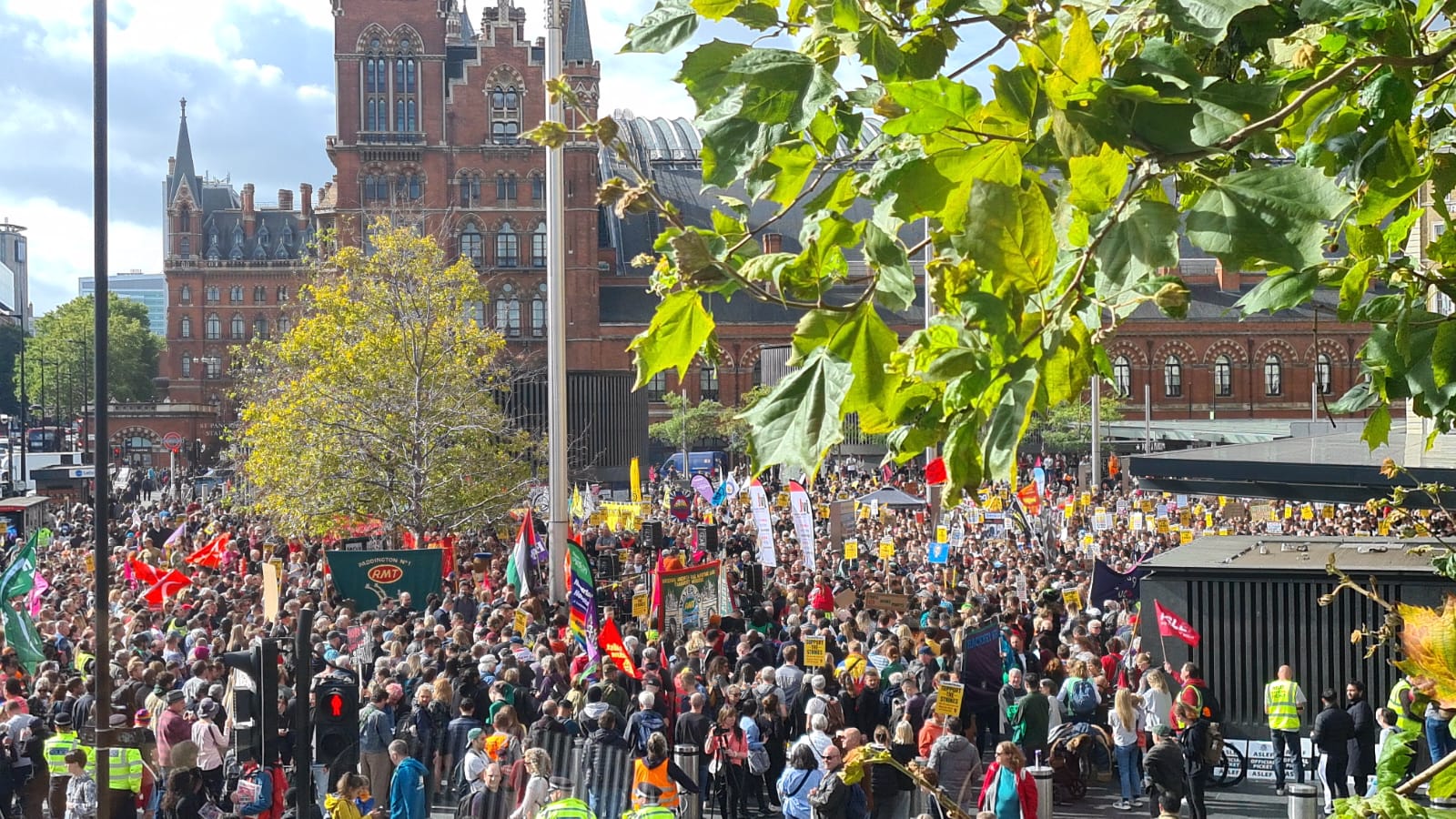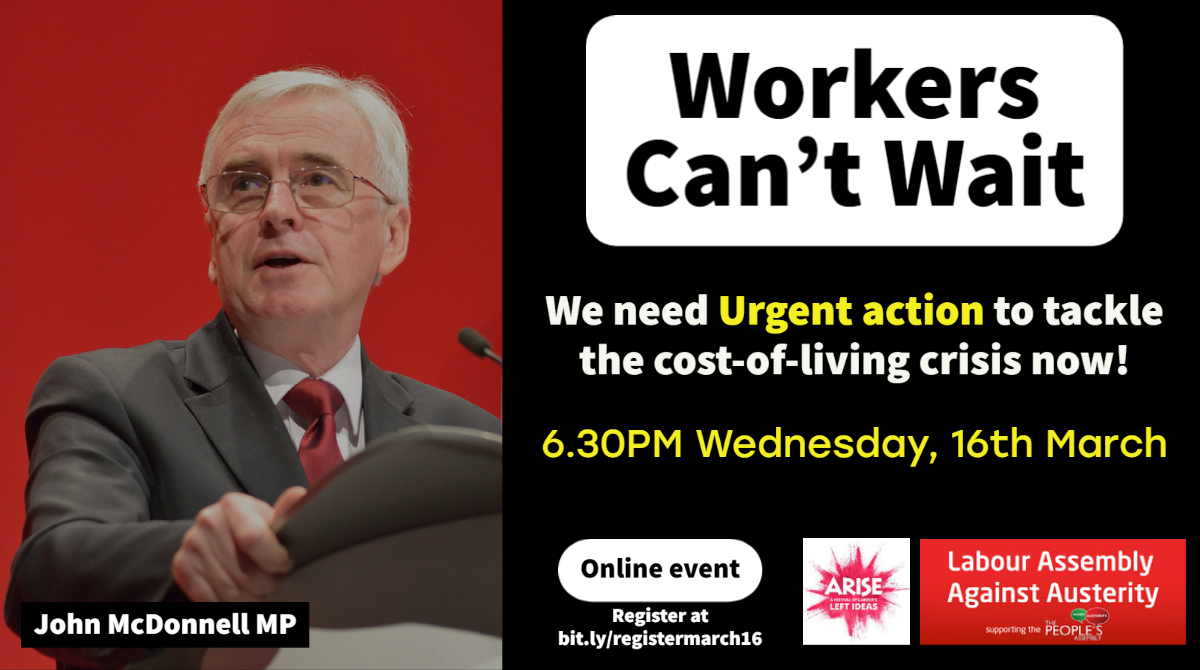 A quick look at the BBC website shows it blithely reporting inflation as running at 2.7 per cent and hailing this as another example of the success of government’s economic strategy.
A quick look at the BBC website shows it blithely reporting inflation as running at 2.7 per cent and hailing this as another example of the success of government’s economic strategy.
But take a closer look, and a little further in the article there lurk some other truths which might not make such comfortable reading for the powers that be.
The other index, the retail price index, showed an inflation rate of 3.3 per cent. Not a success or good sign.
And a little further on another figure emerges – food prices are rising by 4.1 per cent.
With the continued depression of wages this equals falling living standards for ordinary people.
Rail fares and many other services rise in line with the retail index, benefits and local government support with the consumer index.
The food price index shows a big rise at the time when fresh fruit and vegetable prices are traditionally much lower. And they wonder how people struggle to maintain a healthy diet.
How economic news is presented can affect the political atmosphere – and the reality behind the statistics is all too often pushed below the media radar.
Reality means falling real and often actual wages, longer waiting lists for council housing, fast-rising private rents, especially in London, benefits capped, ever longer lists of children who need school breakfasts due to their families’ food poverty and record numbers of people using food banks.
However, to make sure there is not too much sympathy for the poorest, the BBC and other channels broadcast reality TV shows featuring “scroungers.” Success is always measured by personal monetary wealth or the value of a person’s house.
To maintain the illusion of economic improvement George Osborne deftly announced the sale of 6 per cent of the public shares in Lloyds Bank at 75p per share. This is all of 1.5p above the price they were bought for in 2008, netting the Treasury £61 million – or a loss if any consideration is given to the billions tied up in Lloyds Bank for four years.
The next big government con is the planned sale of Royal Mail, founded, built, run and invested in by the public for several centuries.
No doubt we will see a return of the kind of publicity reminiscent of the notorious Tell Sid campaigns of the Thatcherite-era sell-off bonanza.
If we look back on those years it is not hard to see where the money will go – quick profits on early trading in shares followed by asset-stripping as Royal Mail struggles with its universal service obligation to deliver everywhere, while TNT et al cream off the easy, profitable city centre deliveries.
A once proud and iconic service will then have to renegotiate its contract with the Post Office in five years’ time.
Yes, you did read that correctly – Royal Mail will have to negotiate with the Post Office.
The long-running saga of the destruction of this key public service continues to run on and on.
But out there in the real world people are not dancing in the streets at the “success” of the economy.
They are struggling to survive and want to hear an alterative to cuts and austerity.
They are fed up of being told that a millionaires’ tax break will, by the miracle known as “trickle-down,” help us all.
Anyone who wants to see where austerity and cuts ultimately lead to need only look at Spain and Greece where jobless numbers are inexorably rising and less than half of under-25s are engaged in the economy at all.
For an alternative there are a number of steps.
First, total opposition to the privatisation of Royal Mail and an unequivocal pledge by Labour to renationalise after the 2015 election.
Second, to understand the anger at the rip-offs by rail companies, water companies and the energy suppliers.
There is overwhelming public support for full public ownership of the railways as their infrastructure is publicly funded and guaranteed via Network Rail.
The government is acutely aware of this, hence it is hurrying to refranchise the East Coast main line before the next election.
The inefficient duplication of energy companies is best dealt with by public control, not encouraging yet more supposed “competition.”
The water monopolies were created by the Thatcher government and have been a huge source of asset-stripped profit for all the companies involved.
The latest of many scandals is Thames Water’s plans to develop an enormous Thames tunnel to remove sewage from the system to the treatment plants and prevent river pollution during storm periods.
This is a necessary step, but the company seems to think it can either raise prices again to pay for it or call on the public purse.
The profits paid in dividends and the land sales since privatisation would more than cover the investment needed.
All the privatised utilities behave in the same way – by raising prices and hoovering up the profits, then expecting the public to pay or directly subsidise any necessary infrastructure investments.
A clear commitment by Labour on public ownership would force the Tories to defend their public rip-off approach.
Labour’s conference next week offers a chance for Ed Miliband to do exactly this. He quite rightly told the TUC he would end zero-hour contracts.
But we need to go a lot further and end the internal markets in health and local government services, provide proper protection of rights at work and replace the minimum wage with a living wage.
In short, if all that Labour offers is the same Con-Dem spending plans after 2015 there will be no opportunity to redistribute wealth and create a more equal society. On September 29 there will be a huge demonstration in Manchester for an end to austerity.
And on November 9 the Labour Assembly Against Austerity will be held at Birkbeck College in London.
Already supported by Unite and Ucatt, other unions will follow.
Austerity is a convenient cover for right-wing governments to strengthen the power of monetarist ideology, depress wages and living standards and increase inequality.
As PCS president Janice Goodrich memorably put the question to Miliband at the TUC, “Are you for austerity or against it?”
There can only be one answer.



0 Comments